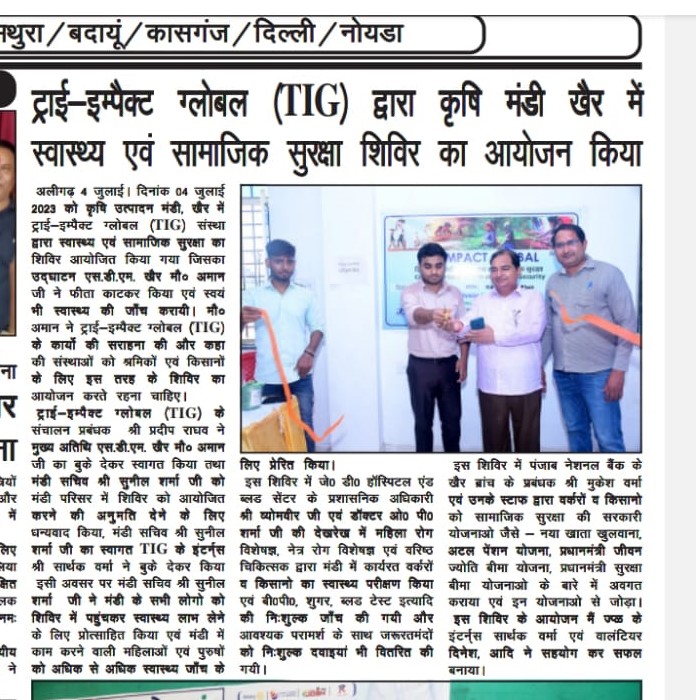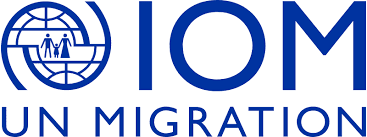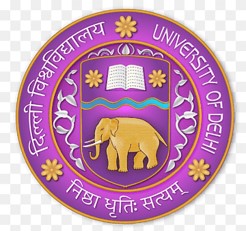In July 2022, we renamed ourselves to reflect our vision and mission of promoting sustainable development through an integrated approach combining people, planet, and prosperity.
Tri-Impact Global is a not-for-profit organization dedicated to sustainable development and transformative change in India and globally. We champion esilient, inclusive growth by empowering marginalized workers and farmers (people), implementing eco-friendly practices (planet), and creating economic opportunities (prosperity).
Our current initiatives include advancing heritage textiles, recycling, citizen-led environmental action, and climate adaptation in agriculture, energy, and housing.
Our Current Programs
Worker Well-Being Program:
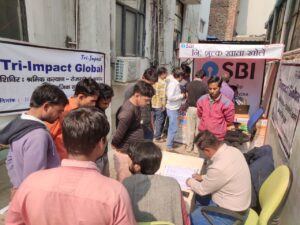
The Well-Being Program for Marginalized Workers and Weavers of Heritage Textiles
aims to address the socio-economic and health challenges faced by these
communities. By providing holistic support, the program seeks to preserve traditional
crafts, improve living standards, and promote sustainable development. Tri-Impact
supports these artisans by promoting Heritage Textiles, thus providing livelihood
opportunities.
Key objectives of the program include:
- Economic Stability: Support workers to become economically stable through increased income opportunities and financial literacy.
- Access to Essential Services: Assist artisans, weavers, workers, and micro-entrepreneurs in accessing essential services such as social security, health check-ups, financial inclusion, and women’s empowerment initiatives through collaborations with banks, hospitals, universities, NGOs, businesses, and government departments.
- Healthcare and Mental Well-Being: Provide access to diagnostic healthcare and promote mental well-being.
- Social Security: Connect workers with government social security schemes to insure them against life uncertainties.
For more details on the objectives and activities under this program, please visit the Worker Well-being page.
“Ensuring better working conditions and promoting worker well-being in labor-
intensive sectors is essential not only for the dignity of the workers but also for
the sustainable growth of our economy.” – International Labour Organization (ILO)
India
Promoting Heritage Textiles as a Climate-Friendly Alternative to Fast Fashion:
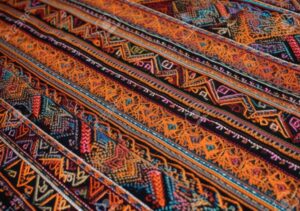 We promote authentic heritage textiles as a sustainable and culturally significant alternative to fast fashion.
We promote authentic heritage textiles as a sustainable and culturally significant alternative to fast fashion.
We build mass awareness and advocate for the use of natural fibers, natural dyes, water- and energy-efficient production methods, and waste minimization in the textile sector. We actively promote products and businesses adhering to these sustainable practices.
We educate consumers, producers, and international buyers on the benefits of heritage textiles as a climate-friendly option, and advocate against the harm caused by counterfeit products.
For more details about the program activities visit Heritage Textiles Page
“Heritage textiles are the living embodiments of India’s rich cultural legacy, representing centuries of craftsmanship and tradition. Preserving these textiles is not just about sustaining livelihoods; it is about safeguarding our cultural heritage.” – Ministry of Textiles, Government of India
Documenting and Disseminating Successes of Climate Adaptations:
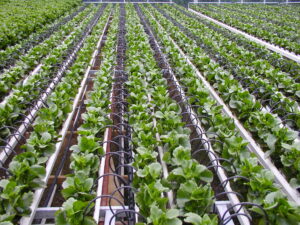
We document and share successful climate adaptation initiatives in agriculture, energy, and housing to inspire broader sustainable practices.
Climate adaptation refers to the process of adjusting to current or expected effects of climate change in order to mitigate harm or exploit beneficial opportunities. It involves adjusting in natural or human systems in response to actual or expected climatic stimuli and their effects, which can help reduce vulnerability or enhance resilience to the impacts of climate change.
“Vulnerable communities are on the frontlines of climate change. They are the least responsible for the crisis but suffer the most from its impacts, highlighting the urgent need for targeted adaptation measures.” – United Nations Development Programme (UNDP)
Climate adaptation is crucial for reducing the risks posed by climate change. It requires coordinated action by individuals, communities, businesses, and governments at all levels. The goal is not only to survive environmental changes but also to create systems that are robust and flexible enough to thrive under changing conditions.
“Investing in climate adaptation is not just a moral imperative; it is an economic necessity. Effective adaptation measures can safeguard lives, protect livelihoods, and ensure sustainable development.” – Global Commission on Adaptation
Practical adaptation strategies are diverse and tailored to address the specific impacts of climate change in various contexts such as agricultural, energy and housing sectors.
“Climate change is no longer a distant threat; it is a present reality that requires immediate and comprehensive adaptation strategies to protect our communities and ecosystems.” – Intergovernmental Panel on Climate Change (IPCC)
Our Current Programs
Worker Well-Being Program:

The Well-Being Program for Marginalized Workers and Weavers of Heritage Textiles
aims to address the socio-economic and health challenges faced by these
communities. By providing holistic support, the program seeks to preserve traditional
crafts, improve living standards, and promote sustainable development. Tri-Impact
supports these artisans by promoting Heritage Textiles, thus providing livelihood
opportunities.
Key objectives of the program include:
- Economic Stability: Support workers to become economically stable through increased income opportunities and financial literacy.
- Access to Essential Services: Assist artisans, weavers, workers, and micro-entrepreneurs in accessing essential services such as social security, health check-ups, financial inclusion, and women’s empowerment initiatives through collaborations with banks, hospitals, universities, NGOs, businesses, and government departments.
- Healthcare and Mental Well-Being: Provide access to diagnostic healthcare and promote mental well-being.
- Social Security: Connect workers with government social security schemes to insure them against life uncertainties.
For more details on the objectives and activities under this program, please visit the Worker Well-being page.
“Ensuring better working conditions and promoting worker well-being in labor-
intensive sectors is essential not only for the dignity of the workers but also for
the sustainable growth of our economy.” – International Labour Organization (ILO)
India
Promoting Heritage Textiles as a Climate-Friendly Alternative to Fast Fashion:
 We promote authentic heritage textiles as a sustainable and culturally significant alternative to fast fashion.
We promote authentic heritage textiles as a sustainable and culturally significant alternative to fast fashion.
We build mass awareness and advocate for the use of natural fibers, natural dyes, water- and energy-efficient production methods, and waste minimization in the textile sector. We actively promote products and businesses adhering to these sustainable practices.
We educate consumers, producers, and international buyers on the benefits of heritage textiles as a climate-friendly option, and advocate against the harm caused by counterfeit products.
For more details about the program activities visit Heritage Textiles Page
Heritage textiles are the living embodiments of India’s rich cultural legacy, representing centuries of craftsmanship and tradition. Preserving these textiles is not just about sustaining livelihoods; it is about safeguarding our cultural heritage.” – Ministry of Textiles, Government of India
Documenting and Disseminating Successes of Climate Adaptations:

We document and share successful climate adaptation initiatives in agriculture, energy, and housing to inspire broader sustainable practices.
Climate adaptation refers to the process of adjusting to current or expected effects of climate change in order to mitigate harm or exploit beneficial opportunities. It involves adjusting in natural or human systems in response to actual or expected climatic stimuli and their effects, which can help reduce vulnerability or enhance resilience to the impacts of climate change.
“Vulnerable communities are on the frontlines of climate change. They are the least responsible for the crisis but suffer the most from its impacts, highlighting the urgent need for targeted adaptation measures.” – United Nations Development Programme (UNDP)
Climate adaptation is crucial for reducing the risks posed by climate change. It requires coordinated action by individuals, communities, businesses, and governments at all levels. The goal is not only to survive environmental changes but also to create systems that are robust and flexible enough to thrive under changing conditions.
“Investing in climate adaptation is not just a moral imperative; it is an economic necessity. Effective adaptation measures can safeguard lives, protect livelihoods, and ensure sustainable development.” – Global Commission on Adaptation
Practical adaptation strategies are diverse and tailored to address the specific impacts of climate change in various contexts such as agricultural, energy and housing sectors.
“Climate change is no longer a distant threat; it is a present reality that requires immediate and comprehensive adaptation strategies to protect our communities and ecosystems.” – Intergovernmental Panel on Climate Change (IPCC)
Our Past Programs (2012-2022)
Enhancing Working Conditions
In the first decade of our work, we focused on improving the working conditions for hundreds of thousands of workers involved in the heritage textiles sector, specifically in handmade carpets, home textiles, and embroidered garments. We achieved this through the following strategic interventions:
Market-Based Incentives:
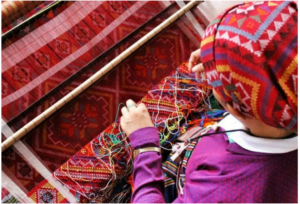 We supported producers, employers, and exporters in the market by enhancing labor standards within their production supply chains. Our social labeling and certification program provided rigorous supply chain monitoring to verify compliance with national laws and labor standards. This program enabled producers to receive a certification mark, ensuring products were made without child labor or forced labor, thus enhancing their market appeal.
We supported producers, employers, and exporters in the market by enhancing labor standards within their production supply chains. Our social labeling and certification program provided rigorous supply chain monitoring to verify compliance with national laws and labor standards. This program enabled producers to receive a certification mark, ensuring products were made without child labor or forced labor, thus enhancing their market appeal.
“Child labor not only deprives children of their education but also exposes them to dangerous and exploitative conditions, undermining their future prospects.” – International Labour Organization (ILO)
Artisan Well-being and Empowerment:
- Linking Workers with Social Security Programs: We connected workers with financial literacy programs, facilitated bank account openings, and provided access to government life and health insurance schemes such as Pradhan Mantri Suraksha Beema Yojana (PMSBY), Pradhan Mantri Jeevan Jyoti Yojana (PMJJY), Atal Pension Yojana etc.
- Health Check-Up Programs: Regular health camps provided basic medical check-ups, addressing common health issues and preventing chronic illnesses.
- Eye Screening Programs: We offered eye screenings, consultations, and distributed eyeglasses to prevent vision-related problems, improving productivity and overall health.
- Support during COVID-19: Our network supported over 50,000 workers and more than 200,000 people in the supply chains and communities during the pandemic, providing food, masks, vaccinations, awareness, financial literacy, digital literacy, and reconnecting them with livelihood opportunities.
“Improving health and safety standards in workplaces is crucial to protecting workers from occupational hazards and ensuring their long-term well-being.” – World Health Organization (WHO)
Educational Support for Workers’ Children:
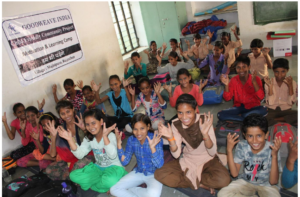 Our education program evolved from a small initiative in 2012 to supporting over 46,000 children by 2020. Collaborating with local schools and the Right to Education program, we ensured children continued their education during the pandemic through online learning tools, digital literacy, and mobilizing support from local youth volunteers.
Our education program evolved from a small initiative in 2012 to supporting over 46,000 children by 2020. Collaborating with local schools and the Right to Education program, we ensured children continued their education during the pandemic through online learning tools, digital literacy, and mobilizing support from local youth volunteers.
“Ensuring access to quality education for children of marginalized workers is crucial for breaking the cycle of poverty and empowering future generations.” – UNICEF India
Join Us
Collaborate with us to foster sustainable, impactful solutions that address pressing global challenges. Together, we can create a better world for today and future generations.
Media Coverage

